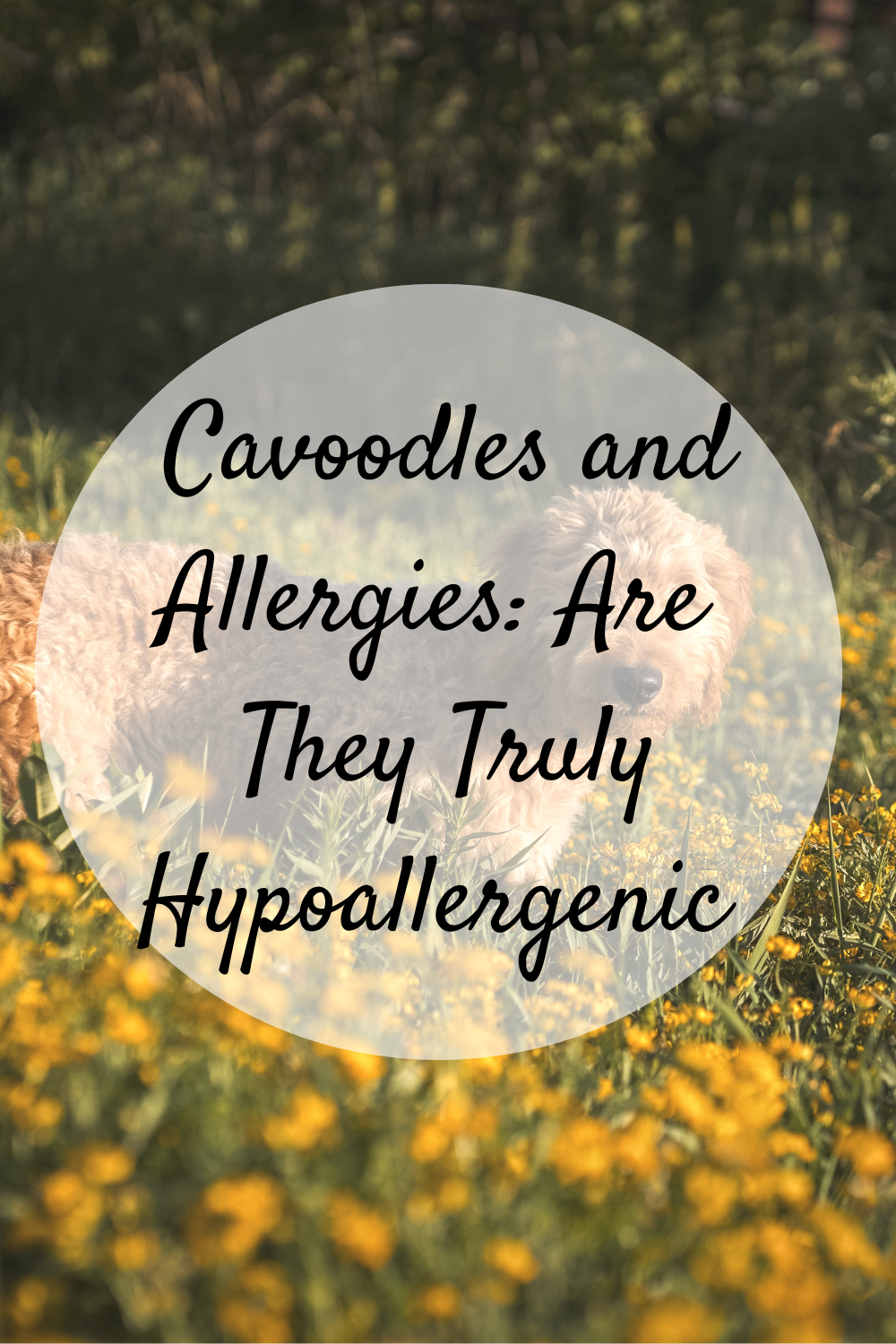
As one of the most sought-after designer breeds, Cavoodles (or Cavapoos) have charmed dog enthusiasts globally with their endearing looks and loving nature. A cross between the Cavalier King Charles Spaniel and the Poodle, Cavoodles are often marketed as hypoallergenic, appealing to those with allergies. But are Cavoodles genuinely hypoallergenic? This article explores the realities of owning a Cavoodle if you have allergies, supported by data and expert insights.
Understanding Hypoallergenic Dogs
The term “hypoallergenic” typically describes breeds less likely to trigger allergic reactions. However, no dog breed is entirely hypoallergenic. Allergic reactions in humans are primarily sparked by proteins found in a dog’s dander (dead skin cells), saliva, and urine. These proteins can attach to fur and become airborne, leading to allergy symptoms such as sneezing, itching, and respiratory issues.
The Cavoodle’s Hypoallergenic Reputation
Cavoodles are frequently lauded as hypoallergenic due to their Poodle ancestry. Poodles are known for their low-shedding coats, which produce less dander compared to many other breeds. However, the hypoallergenic nature of Cavoodles is not a guarantee, as they inherit traits from both parent breeds.
Shedding and Dander Production
Cavoodles typically possess one of three coat types: straight, wavy, or curly. The curly coat, inherited from the Poodle, is more likely to trap dander and reduce shedding, potentially making it more suitable for allergy sufferers. According to a study published in the American Journal of Rhinology & Allergy, low-shedding breeds, including Poodles, tend to release fewer allergens into the environment compared to high-shedding breeds.
Personal Variability in Allergic Reactions
Allergic reactions to dogs can vary significantly from person to person. Some individuals may have mild reactions to certain breeds, while others experience severe symptoms. Dr. Tania Elliott, an allergist and spokesperson for the American College of Allergy, Asthma, and Immunology (ACAAI), states, “There is no single breed that is completely allergy-free, but some breeds may be better tolerated by certain individuals.”
Managing Allergies with a Cavoodle
If you are contemplating a Cavoodle and have allergies, there are several strategies to help manage your symptoms:
- Regular Grooming: Frequent grooming can help reduce the amount of dander and loose fur in your home. Brushing your Cavoodle’s coat several times a week and bathing them regularly can minimize allergens.
- Cleaning Your Home: Maintaining a clean living environment is crucial. Vacuuming with a HEPA filter, using air purifiers, and washing bedding and furniture covers regularly can help reduce allergens.
- Creating Allergen-Free Zones: Designate certain areas of your home, such as bedrooms, as pet-free zones to minimize exposure to allergens.
- Consulting an Allergist: Work with an allergist to develop a management plan tailored to your specific allergies. Allergy testing can help determine your sensitivity to pet dander and guide you in finding effective treatments.
Data on Allergens and Cavoodles
Research on allergens in specific dog breeds, including Cavoodles, is limited. However, a study conducted by the Henry Ford Health System found that homes with hypoallergenic dogs did not have significantly lower levels of dog allergens compared to homes with other breeds. This suggests that while some individuals may experience fewer symptoms with certain breeds, the overall allergen levels may not differ substantially.
Case Studies and Owner Experiences
Personal experiences from Cavoodle owners with allergies provide valuable insights. Many owners report that their Cavoodles cause fewer allergy symptoms compared to other breeds they have owned. For example, Sarah, a Cavoodle owner from Sydney, shares, “I have mild dog allergies, but my Cavoodle doesn’t trigger them as much as my previous Labrador did. Regular grooming and keeping him out of my bedroom have made a big difference.”
Conclusion: Are Cavoodles Truly Hypoallergenic?
While Cavoodles are often marketed as hypoallergenic, it is important to understand that no dog breed is completely free of allergens. The hypoallergenic nature of Cavoodles can vary depending on their coat type and the individual’s sensitivity to allergens. Curly-coated Cavoodles may produce fewer allergens, making them a better choice for some allergy sufferers.
However, managing allergies involves more than just choosing the right breed. Regular grooming, maintaining a clean home, and working with an allergist are essential steps to minimize allergic reactions. Ultimately, Cavoodles can be a suitable option for individuals with allergies, but prospective owners should carefully consider their own sensitivities and take proactive measures to manage allergens effectively.
By understanding the realities of hypoallergenic breeds and implementing practical strategies, you can enjoy the companionship of a Cavoodle while keeping allergy symptoms under control. Whether you are an allergy sufferer or simply a dog lover, the affectionate and playful nature of Cavoodles makes them a wonderful addition to any home.





